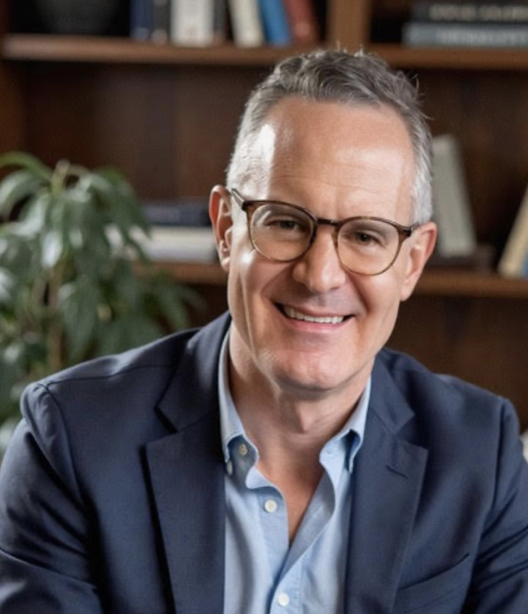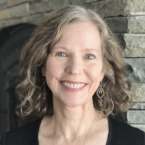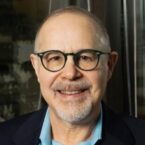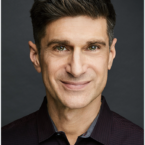Level 2 Certification Course

Presented by AEDP™ Institute Faculty:
Benjamin Lipton, LCSW
Mary Androff, MD
Richard Harrison, PhD
Ronald Frederick, PhD
Live Online, Five 4-Day Modules, July 2023 – April 2024
Designed for Time Zones: Americas
Who the Essential Skills (ES1) Course is for:
Essential Skills is for Immersion Grads who are licensed mental health practitioners (or the local/regional equivalent to ‘licensed’*) as well as interns legally practicing under the license of a supervising practitioner.
These licensed mental health practitioners include: Psychologists, Social Workers, Counselors, Doctors, Nurses, Psychoanalysts, Psychotherapists, other Behavioral Health Therapists and related professionals.
*Every country / state / province has different rules regarding licensing. While AEDP™ Institute is generally familiar with navigating the licensing process in the U.S., we are not familiar with the process and regulations in most other countries. Our practice is to consult local AEDP practitioners for information on the nuances of education, licensing and other regulations in their areas.
If you have a question about the relevance of this course for you and/or your eligibility for this course please contact admin@aedpinstitute.org with your credentials before registering.
Course Description
AEDP™ psychotherapy is an empirically supported approach that seeks to alleviate patients’ psychological suffering by helping them process the overwhelming emotions associated with trauma in a way that facilitates corrective emotional and relational experiences that mobilize changes in the brain.
If you are interested in persuing AEDP certification, the Essential Skills is the second course in a series of certification courses for licensed therapists.
AEDP Essential Skills provides practical skills for the application of AEDP as well as a thorough immersion in the theory underlying the practice. Different skill sets will be introduced, explained, illustrated and practiced in each module, so that participants will emerge with both an understanding and a felt sense of how to practice AEDP.
Faculty Steeped in Theoretical Framework, Clinical Teaching from Videotapes, Experiential Exercises. These are the hallmarks of AEDP trainings. At AEDP Institute, we pride ourselves in how thoroughly and deeply we seek to both undo professional aloneness and engage in rigorous clinical teaching with skilled accompaniment. Our faculty are excellent as academics, clinicians and teachers. Participants deeply appreciate how effectively faculty presenters’ clinical video demonstrates “AEDP in action.” And faculty have skilled accompaniment from a large number of Experiential Assistants. Participants rave about the excellent attention and support they receive in this unique learning environment.
Routine for each module: AEDP skills are introduced with their theoretical foundations and with illustrations by way of clinical videotapes. Skills are then practiced in small group experiential exercises. Experiential practice time makes up roughly 40% of the course.
Course Topics Module 1 – 5:
Module 1: “Healing from the Get-Go, Undoing Aloneness & the Clinical Roadmap for AEDP’s Transformation Journey”
Module 2 :”Attachment & Relational Work: Undoing Aloneness in Clinical Action”
Module 3: “State 1: The Top of the Triangle of Experience Working with Defense and Anxiety”
Module 4: “State 2 Work: the Processing of Core Affective Experience”
Module 5: “The Processing of Transformational Experience & The Integration of Transformation into Self State 3 & State 4 Work”
Course Objectives:
Participants will be able to:
Apply the 4 state map of AEDP as a framework for processing the full range of affects, both negative and positive, which can lead to increased emotional awareness, authenticity, and a deeper sense of self.
Track the process of affective experience across the 4 State map of AEDP.
Target their interventions to correspond to where the client is on the 4 State map of AEDP.
Lst 6 transformational affects in AEDP that lead to transformative change to maximize patient’s healing.
Utilize Metaprocessing, ie. the process of reflecting on positive therapeutic experiences, as a primary focus of facilitating and integrating emergent, adaptive therapeutic changes.
Demonstrate how to help a client develop a new working model of secure attachment and relational capacity, promoting healthier and more fulfilling relationships in their life.
Demonstrate how a therapist’s mindful, authentic open-hearted embrace of a patient’s gratitude facilitates transformance, i.e. a neurobiologically wired in capacity for healing and thriving.
Describe how to facilitate state transformations; moments of profound change and shifts in the client’s emotional states which can lead to increased resilience, emotional regulation, and a sense of personal growth.
Describe how transformance, a central construct in AEDP psychotherapy, is the overarching motivational force driving positive change.
Utilize moment-to-moment tracking, a core clinical technique of AEDP, to assess the client’s experience of the effectiveness of AEDP therapeutic interventions.
Role-play how to promote client’s safety, how to use tracking, how to regulate anxiety, how to metaprocess, and how to apply state specific interventions.
Role-play how to assess markers of transformation in the client, how to express affirmation, how to bypass defenses, and how to embody the AEDP stance of explicit care and compassion for the client.
Suggested Readings for each module
View the suggested reading list here.
Course Perks
- Peer to Peer Listserv – stay connected with your colleagues in between modules. This is a private listserv for your cohort only. Share your clinical experiences as you apply AEDP to your practice, what worked and what didn’t . . . your gains and your frustrations too!
- Regional / Affinity Break Out Rooms during lunch and breaks – just let the facilitator know who’s in your group and they will set up a private room for you.
Daily Schedule
View the daily agenda for all 5 modules here.
Location: Live Online and highly interactive
AEDP’s Live, Online Learning: Requirements & FAQ’s
Dates & Times
- Sessions run Friday – Monday
- Online sessions use the U.S. Eastern Time Zone
- Please double check the meeting times for your local time zone if not U.S. Eastern Time Zone by visiting https://www.24timezones.com/ or your resource of preference.
- Please check the dates and times closely for conflicts with Local Holidays, Religious Holidays, etc.
- Participants must commit to all 5 modules.
Times: 12:00 PM – 4:30 PM Eastern Time
2023 – 2024
Module 1 | July 21-24, 2023 | Benjamin Lipton, LCSW
Module 2 | Sept 8-11, 2023 | Mary Androff, MD
Module 3 | Dec 15-18, 2023 | Richard Harrison, PhD
Module 4 | Feb 2-5, 2024 | Ronald Frederick, PhD
Module 5 | Apr 26 – 29, 2024 | Benjamin Lipton, LCSW
Registration, Course Fees and Scholarships
Member Registration: $3,200 USD (please log in to register)
Member Registration with a payment plan: $3259 (requires a deposit of $500 due at registration and 8 monthly payments of $344.87 starting one month after your registration date)
To attend you must be a licensed therapist who is AEDP Level 1 (completed AEDP Immersion).
- $3,200 USD Non-Member Course Fee
Payment plan: $500 due at registration – Call Marilia 813-553-1294 to schedule your payment plan.
Limited Scholarships are available. To learn more and apply, please go here.
Are you a Member? Log in to get your Member discount
This course is closed
Meet the Presenters

Benjamin Lipton, LCSW
Benjamin Lipton, LCSW, is a Senior and founding Faculty member of the AEDP Institute. He has been instrumental in the development and teaching of AEDP across the US and in Canada, Sweden, Israel, Norway, and Denmark. He also supervises individuals and small groups of clinicians learning AEDP around the world. A sought after teacher and speaker, Ben is known for his open and engaging style, his humor, and his particular ability to translate complex theoretical concepts into user-friendly, accessible and engaging learning experiences. Ben has edited a book and contributed many book chapters and articles in psychology and social service journals as well as mainstream magazines. His most recent publication is a chapter on therapeutic presence in Undoing Aloneness & the Transformation of Suffering Into Flourishing: AEDP 2.0 edited by Diana Fosha. During the height of the HIV/AIDS epidemic in the US, Ben was the Director of Clinical Services at Gay Men’s Health Crisis (GMHC) (Read More…)
Mary Androff, MD
Mary Androff, MD, is a faculty member of AEDP™ Institute. Based in Minneapolis-St Paul, Mary works in a private psychotherapy and integrative psychiatry practice and also provides psychiatric consultation for an Assertive Community Treatment team. Her journey to AEDP began with STEM (chemistry at University of Illinois), then medicine (Washington University-St Louis), then psychiatric residency (University of Washington, Seattle), then training in psychodynamic psychotherapy alongside daily yoga and meditation practices.
Seeking a way to integrate all these threads and hoping to discover a more coherent theoretical framework, Mary found her professional home when she took the AEDP Immersion course. She went on to receive certification as an AEDP therapist in 2015 and as an AEDP supervisor in 2020. She founded AEDP Minnesota in 2017. She has run multiple study and consultation groups, participates as a treating clinician in the AEDP research program, teaches ES1 modules and provides individual and group AEDP supervision.

Richard Harrison, PhD
Richard Harrison, PhD, is a faculty member of AEDP™ Institute and a Registered Psychologist with over 25 years’ experience as a clinician and teacher. He was trained and supervised in AEDP by Diana Fosha, founder of the model. He is a Certified Supervisor in both AEDP and EFT. Richard teaches and supervises graduate students in the Counseling Psychology and Psychiatry departments at the University of British Columbia, and maintains a full clinical caseload with individuals and couples in private practice in Vancouver.
Richard has authored peer-reviewed publications on AEDP theory and practice; attachment-informed supervision; and therapist self-care; including a 2020 article in Psychotherapy on “Termination in 16-session

Ronald J. Frederick, PhD
Ronald J. Frederick, PhD, is a licensed clinical psychologist, senior faculty member of the AEDP Institute, co-founder of the Center for Courageous Living in Los Angeles, California and author of the award winning books Living Like You Mean It (Jossey-Bass, 2009) and Loving Like You Mean It (Central Recovery Press, 2019). Since 1994, Dr. Frederick has been training in, practicing, and teaching the AEDP model of psychotherapy, and has received extensive training and supervision from Dr. Fosha. Past experience includes fourteen years as a Clinical Supervisor at Abbott Northwestern Hospital’s Park House Day Treatment Program, a post-doctoral fellowship in Medical Psychology and HIV in the AIDS Center Program at Roosevelt Hospital, NYC, where he later worked as a staff psychologist, and a year-long training rotation in Intensive Short-Term Dynamic Psychotherapy at Beth Israel Medical Center, NYC. Dr. Frederick supervises trainees in the AEDP model, and has co-facilitated, with Dr. Fosha, AEDP numerous Immersion Courses and workshops. (Read More…)
There is no conflict of interest or commercial support for this program.
ADA Accommodations | Attendance | Refund Policy | Questions
ADA
All AEDP Institute Trainings are offered Live Online.
Should you need any modification or accommodation to allow you to effectively
participate, please contact Marilia Rodriguez, admin@aedpinstitute.org or call
813-553-1294 thirty days or more before the event so we can be sure to accommodate
you.
Attendance and Makeup Policy & Refunds
• Attendance and Makeup Policy
• Refund Policy
• Grievance Policy
Course and all customer service related questions:
Please contact Customer Service Administrator
Marilia Rodriguez
admin@aedpinstitute.org
813-553-1294
Office Hours: 9:00 – 5:00 PM Eastern Time USA
